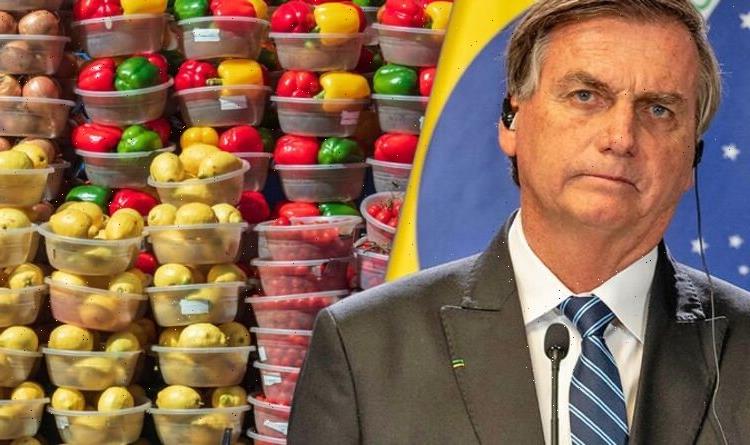Biologist asks policy makers to ban harmful pesticides
We use your sign-up to provide content in ways you’ve consented to and to improve our understanding of you. This may include adverts from us and 3rd parties based on our understanding. You can unsubscribe at any time. More info
A new report that was released earlier this week reveals that the ongoing trade discussions between the UK and Brazil will likely lead to an increase in pesticide-related harms in both countries. The study, titled Toxic Trade Brazil, looks at how the growth in trade with Brazil being pursued by the UK Government could result in British consumers unwittingly finding their diets driving serious health and environmental impacts both in Brazil where the food is grown and in the UK.
In a statement, Josie Cohen, Head of Policy and Campaigns at Pesticide Action Network UK, said: “The UK Trade Secretary is promoting trade with Brazil as providing ‘real opportunities to go further on green trade’.
“Meanwhile, Brazil’s overuse of highly toxic pesticides is contributing to the destruction of the Amazon and other crucially important ecosystems, contaminating water and poisoning farmworkers and communities.
“And yet the Government has provided no detail on how it will ensure that Brazilian food sold on UK shelves is not contributing to the global climate and nature crises.”
According to a statement from Pesticide Action Network UK, Brazil is the third-largest user of pesticides globally.


Currently, Brazilian President Jair Bolsonaro is pushing his so-called “poison package” through Congress, which will slash laws designed to protect people from being poisoned by pesticides.
Brazil’s pesticide standards are already far weaker than those of the UK, with almost twice as many highly hazardous pesticides allowed for use, including the lethal herbicide paraquat and bee-toxic neonicotinoids.
Speaking to Express.co.uk, Ms Cohen, who is the co-author of the study, warned that deals with Brazil could lead to UK consumers buying foods with more pesticides.
She said: “Any increase in agricultural trade with Brazil threatens to bring a flood of food containing larger amounts of more toxic pesticides into the UK, undercutting our farmers and increasing the risk to consumer health.

“Our imports of Brazilian soya would also be likely to grow, almost all of which ends up being fed to animals.
“But most UK consumers don’t know that meat sold on UK shelves could have been fed on Brazilian soya grown using toxic pesticides that are banned in the UK because of their impact on human health and the environment.”
The report also exposed an increase in trade with Brazil could end up weakening the UK’s own domestic pesticide standards
According to the report, as a major agricultural exporter, Brazil would have much to gain from a drop in UK standards, which currently exclude food exports containing pesticides in amounts that exceed UK safety limits.
DON’T MISS:
Macron’s threat to Britain backfires as UK ‘doesn’t need EU in space [REVEAL]
End of the world warning after scientists simulate 100,000 outcomes [INSIGHT]
Wuhan lab leak mystery blown open with ‘close relative’ of Covid found [SPOTLIGHT]


As an example, the report looked at Brazilian lemons, which contain 200 times the amount of the insecticide dimethoate than those allowed to be sold in the UK., which is a banned chemical linked to cancer.
Source: Read Full Article
